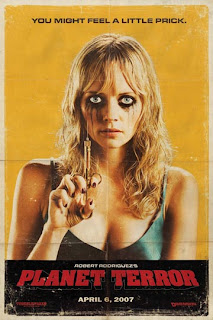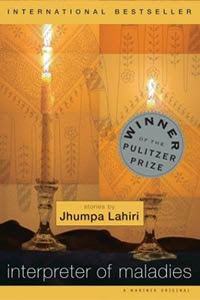Într-una dintre cele mai controversate cărţi ale sale, celebrul cercetător în ştiinţe politice Robert Putnam descria consumatorul contemporan de media ca fiind un tip care nu arată prea grozav pentru viitorul celei mai de succes democraţii din lume. E cam plictisit şi în general dezinteresat de problemele sociale şi politice ale comunităţii în care trăieşte sau ale naţiunii americane în general. Nu îl mai doare nici măcar în cot, deci nu prea are motive să se uite la ştiri. În schimb, e mare amator de divertisment şi şi-a “privatizat” în aşa fel timpul liber încât să îl poată consuma singur sau în grup restrâns. Adică nu se mai prea urneşte de pe canapeaua din faţa televizorului pentru a interacţiona cu alţi membri ai societăţii sau pentru a se implica. În plus, e un tip foarte capricios. Preaputernic peste telecomandă, el are un comportament de consum media sintetizat de Putnam prin motto-ul “ce vreau, când vreau şi unde vreau”. Intransigent şi fără a face concesii în apăsarea butonului de schimbare a canalului, el e un practicant activ al acţiunii de “zapping”. Parcă pentru a-şi reconfirma puterea de alegere, adesea petrece mai mult timp verificând rapid întreaga ofertă disponibilă pe cele măcar 50 de canale TV, decât fidel în vizionarea propriu-zisă a unei producţii media de la început la sfârşit.
E destul de clar că răbdarea nu reprezintă unul dintre punctele forte ale acestui consumator. Orice program potenţial generator de plictis e rapid abandonat. Iată de ce momentele prelungite de linişte sau de imagini statice constituie un lux pe care regizorii de filme şi-l permit destul de rar în ultimii ani. Dacă nu avem dialog, atunci avem o coloană sonoră captivantă. Sau dacă trebuie neapărat să fie linişte, atunci succesiunea de imagini probabil are ataşat un mănunchi foarte gros de cârlige pentru captarea atenţiei. Preferabil sex, violenţă, droguri sau acţiuni cu o valoare reprobabilă echivalentă.

De aceea filmul regizat de Alexander Payne după cartea lui Louis Begley (din care însă nu mai păstrează decât numele personajului şi puţine detalii de context) pare destul de anacronic la nivel de structură. Totul despre Schmidt (About Schmidt) are un story lent (şi destul de anemic). Cine e Warren Schmidt? Un bătrân care iese la pensie şi nu face mai nimic interesant toată ziua. Ah da, îi moare soţia, dar oricum nu o prea putea suferi. În rest, scrie scrisori şi stă în halatul lui de baie cam tot timpul. La un moment dat se hotărăşte să îşi viziteze casa în care s-a născut şi constată că pe locul ei e acum un magazin de anvelope. Deci îşi revarsă neinvitat amintirile către bietul vânzător de acolo, care e prea politicos să îşi exprime dezinteresul. Apoi vizitează universitatea pe care o frecventase acum mai bine de 40 de ani. Şi din nou e mult prea generos cu împărtăşirea de amintiri către nişte studenţi care nici nu îl ascultă. Parcă în ciuda audienţei lipsite de răbdare, Alexander Payne nu face deloc economie la luxul numit “linişte”. Cadrele fixe, cu o coloană sonoră minimală sau chiar inexistentă nu sunt doar o întâmplare, ci aproape un refren. Cum de regizorul are succes cu un astfel de film în era “zapping”-ului? Pe de o parte îl are pe Jack Nicholson într-un rol care probabil poate fi egalat doar de vechea performanţă din Zbor deasupra unui cuib de cuci. Pe de alta, are cel mai plauzibil pretext. Viaţa lui Warren Schmidt este o viaţă în care nu se mai întâmplă nimic. Iar filmul redă asta cu claritatea unei oglinzi.
Pretextul pe care Alexander Payne îl găseşte pentru a vedea ce se întâmplă în interiorul acestui personaj (fiindcă din afară nu vedeam decât un şir lung de acţiuni şi fraze banal-monotone) sunt scrisorile lui către Ndugu. Warren Schmidt descoperă într-o zi un program prin care poate sponsoriza un copil din Africa, procedeu echivalent cu un fel de adopţie la distanţă. Se decide să participe şi îl “primeşte” pe Ndugu – un tanzanian de 6 ani, ce devine “copilul la distanţă” al lui Schmidt. Copil căruia, pe lângă cei 22 de dolari pe care îi expediază lunar, îi trimite şi câteva pagini scrise de mână. Pentru spectator, ele funcţionează ca nişte confesiuni revelatoare. Pentru Ndugu, în rama ficţională, probabil nu funcţionează decât ca nişte ataşamente fără rost ale banilor, fiindcă el nu ştie nici să scrie şi nici să citească.
Stilul subversiv al lui Payne e cel care face ca filmul să pară adesea comic, într-un mod foarte negru desigur, în ciuda depresiei implacabile a protagonistului. În cele din urmă însă, tăcerile lungi, lentoarea şi aparenta plictiseală nu fac decât să sublinieze excluderea sa dureroasă din viaţă. Moartea lui aparentă începe imediat după încetarea rutinei zilnice de la birou şi după dispariţia soţiei, chiar dacă până la moartea lui propriu-zisă ar mai putea fi mulţi ani. Schmidt nu mai înţelege, nu se mai poate adapta, nu îşi mai găseşte nici o semnificaţie şi nici un loc. Esenţa filmului stă într-una dintre frazele finale: "Relativ curând voi muri. Poate în 20 de ani, poate mâine, nu contează. Odată ce mor, şi toţi cei care m-au cunoscut mor şi ei, va fi ca şi cum nu aş fi existat niciodată. Cum am marcat viaţa celor din jur? În nici un fel. Absolut în nici unul."












